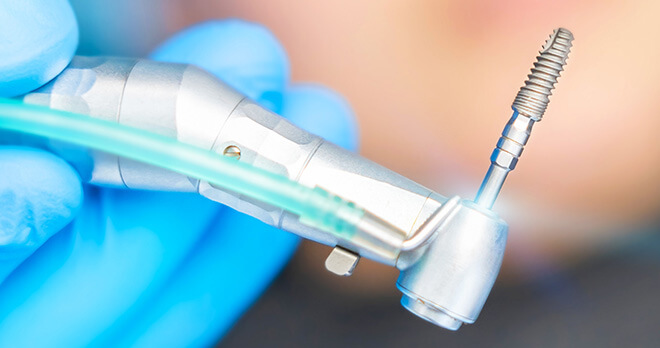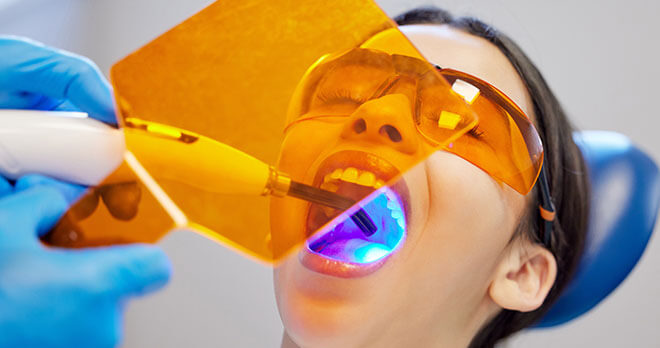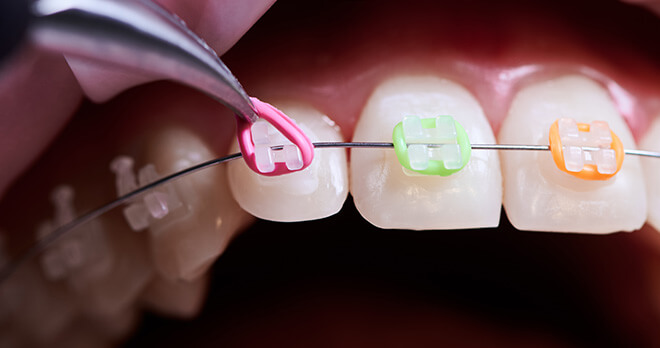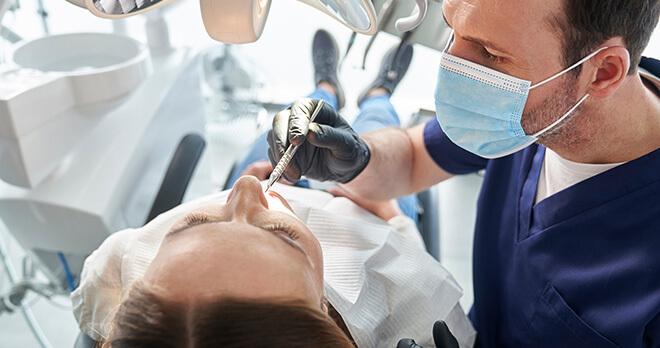What are orthodontic ligatures and why are they used?
Are you unsure about what is happening during your orthodontic adjustment appointments? People are commonly confused by all the technical orthodontic terms and are worried about asking questions.
It is easy to feel overwhelmed and that you shouldn’t ask questions, however it is important that you understand what is happening and part of your orthodontist role is to explain the process so that you can properly consent to the treatment.
This blog will be focussing on ligatures, what they are and why they are used.
Ligatures
Orthodontic ligatures are tiny rubber bands that tie the brackets and wires together. They are a much needed part of your orthodontic treatment because they help to evenly distribute the occlusal forces (the force exerted on opposing teeth when your upper and lower teeth meet together) to straighten your teeth.
Orthodontic ligatures are usually hooked up to the brackets and tie the wire to the brackets themselves but can be placed anywhere where extra pressure is needed, or where the wire needs to be tied down to affect the entire row of teeth.
What types of Ligatures are there?
Orthodontic ligatures can be colourful or transparent. Some patients prefer to have the invisible look however some like to have a more fun look and to draw attention to their braces.
Are ligatures always elastic?
Ligatures are not always elastic they can also be surgical steel power chains. These are large, flat linked chains that are attached to certain teeth and are only necessary in certain cases, but where necessary it would be extremely difficult to achieve the desired movement without them. For example, a patient may have two teeth overlapping which may not straighten out with elastics but instead require a flat linked chain attached to the teeth in order to progress movement.
If you are undergoing orthodontic treatment, please do not hesitate to ask your orthodontist what they are going to be doing during your appointments regardless of whether you are having treatment under the NHS or privately. It is your teeth and your treatment plan so do not be afraid to ask questions! If you are concerned that you may have received substandard orthodontic treatment, please contact us.
Got a question?
You can call the team on 0800 923 2080 or message them to understand more about you potential compensation claim for dental negligence. We will get back to you at a time that is convenient to you.
Common claim types
Insights and opinions
View more articles related to Cosmetic dentistry, Crowns and bridges, Dental implants, Dental nerve damage, Extractions, Gum disease, Information, Mouth cancer, Orthodontics, Root canal treatment, Tooth decay and Wisdom teeth










